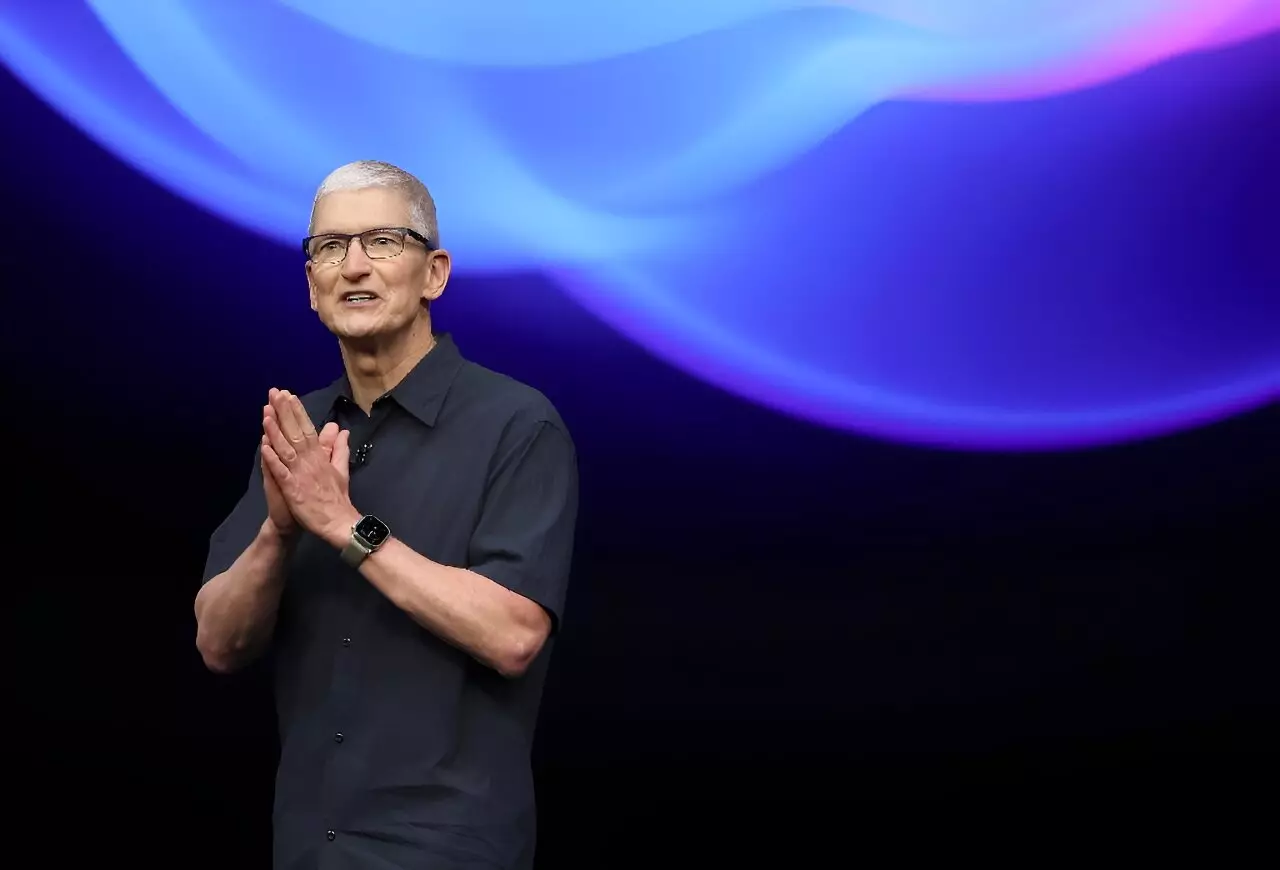Apple recently made headlines by introducing the iPhone 16, a revolutionary device specially designed for generative artificial intelligence. This move signifies Apple’s commitment to innovation and staying ahead in the ever-evolving technology landscape. With a substantial portion of its revenue coming from iPhone sales, Apple is banking on the appeal of AI-powered features to entice customers and drive up sales. The unveiling of the iPhone 16 marks a significant milestone in Apple’s journey towards integrating cutting-edge technology into its flagship product.
At the heart of the iPhone 16 is “Apple Intelligence,” a suite of software features aimed at enhancing user experiences across all Apple devices. This initiative was first introduced at Apple’s annual developers conference, where the tech giant also announced a strategic partnership with ChatGPT-maker OpenAI. According to Apple CEO Tim Cook, artificial intelligence and machine learning have been instrumental in delivering a wide array of features and experiences that users love. The launch of Apple Intelligence represents a major step forward in leveraging AI to create more personalized and intuitive interactions for consumers.
In the short term, the iPhone 16 will showcase AI-infused capabilities such as image editing, translation, and innovative messaging features. While these enhancements are notable, they fall short of the more ambitious breakthroughs promised by competitors like OpenAI and Google. Analysts predict that the introduction of generative AI capabilities will lead to the development of new apps and services tailored to leverage the power of AI on iPhones. Beyond just software upgrades, Apple is also expected to optimize its AirPod earbuds and smartwatches to harness the full potential of AI and the Siri digital assistant. The unveiling of new Apple Watch and AirPod models at the event underscores Apple’s commitment to integrating AI capabilities across its entire product ecosystem.
By incorporating AI into its devices, Apple aims to disrupt the conventional narrative of incremental hardware and software upgrades associated with new iPhone releases. Industry experts believe that Apple’s long-term vision includes the integration of a “super-powered Siri” that seamlessly operates across all applications, fundamentally transforming the user experience. This strategic shift towards AI mirrors the broader trend in the tech industry, with competitors like Google also making significant strides in AI integration. Google’s recent launch of AI-infused Pixel 9 smartphones represents a direct challenge to Apple’s dominance in the smartphone market, signaling a new era of competition driven by AI capabilities.
As Apple embarks on a new chapter with the introduction of the iPhone 16 and Apple Intelligence, the tech giant is poised to reshape the landscape of consumer technology through the power of AI. The convergence of AI and everyday devices opens up a world of possibilities for enhancing productivity, connectivity, and personalization. With the iPhone 16 leading the way, Apple is setting the stage for a future where artificial intelligence plays a central role in redefining the way we interact with our devices. The dawn of Apple Intelligence marks a pivotal moment in the evolution of smartphones and underscores the transformative potential of AI in shaping our digital experiences.


Leave a Reply